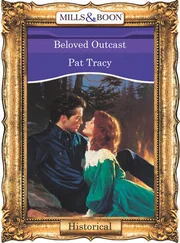And they beat. The women for having known them and no more, no more; the children for having been them but never again. They killed a boss so often and so completely they had to bring him back to life to pulp him one more time. Tasting hot mealcake among pine trees, they beat it away. Singing love songs to Mr. Death, they smashed his head. More than the rest, they killed the flirt whom folks called Life for leading them on. Making them think the next sunrise would be worth it; that another stroke of time would do it at last. Only when she was dead would they be safe. The successful ones-the ones who had been there enough years to have maimed, mutilated, maybe even buried her-kept watch over the others who were still in her cock-teasing hug, caring and looking forward, remembering and looking back. They were the ones whose eyes said, "Help me, 's bad"; or "Look out," meaning this might be the day I bay or eat my own mess or run, and it was this last that had to be guarded against, for if one pitched and ran-all, all forty-six, would be yanked by the chain that bound them and no telling who or how many would be killed. A man could risk his own life, but not his brother's. So the eyes said, "Steady now," and "Hang by me."
Eighty-six days and done. Life was dead. Paul D beat her butt all day every day till there was not a whimper in her. Eighty-six days and his hands were still, waiting serenely each rat-rustling night for "Hiiii!" at dawn and the eager clench on the hammer's shaft. Life rolled over dead. Or so he thought.
It rained.
Snakes came down from short-leaf pine and hemlock.
It rained.
Cypress, yellow poplar, ash and palmetto drooped under five days of rain without wind. By the eighth day the doves were nowhere in sight, by the ninth even the salamanders were gone. Dogs laid their ears down and stared over their paws. The men could not work.
Chain-up was slow, breakfast abandoned, the two-step became a slow drag over soupy grass and unreliable earth.
It was decided to lock everybody down in the boxes till it either stopped or lightened up so a whiteman could walk, damnit, without flooding his gun and the dogs could quit shivering. The chain was threaded through forty-six loops of the best hand-forged iron in Georgia.
It rained.
In the boxes the men heard the water rise in the trench and looked out for cottonmouths. They squatted in muddy water, slept above it, peed in it. Paul D thought he was screaming; his mouth was open and there was this loud throat-splitting sound-but it may have been somebody else. Then he thought he was crying. Something was running down his cheeks. He lifted his hands to wipe away the tears and saw dark brown slime. Above him rivulets of mud slid through the boards of the roof. When it come down, he thought, gonna crush me like a tick bug. It happened so quick he had no time to ponder.
Somebody yanked the chain-once-hard enough to cross his legs and throw him into the mud. He never figured out how he knew- how anybody did-but he did know-he did-and he took both hands and yanked the length of chain at his left, so the next man would know too. The water was above his ankles, flowing over the wooden plank he slept on. And then it wasn't water anymore. The ditch was caving in and mud oozed under and through the bars.
They waited-each and every one of the forty-six. Not screaming, although some of them must have fought like the devil not to. The mud was up to his thighs and he held on to the bars. Then it came- another yank-from the left this time and less forceful than the first because of the mud it passed through.
It started like the chain-up but the difference was the power of the chain. One by one, from Hi Man back on down the line, they dove. Down through the mud under the bars, blind, groping. Some had sense enough to wrap their heads in their shirts, cover their faces with rags, put on their shoes. Others just plunged, simply ducked down and pushed out, fighting up, reaching for air. Some lost direction and their neighbors, feeling the confused pull of the chain, snatched them around. For one lost, all lost. The chain that held them would save all or none, and Hi Man was the Delivery. They talked through that chain like Sam Morse and, Great God, they all came up. Like the unshriven dead, zombies on the loose, holding the chains in their hands, they trusted the rain and the dark, yes, but mostly Hi Man and each other.
Past the sheds where the dogs lay in deep depression; past the two guard shacks, past the stable of sleeping horses, past the hens whose bills were bolted into their feathers, they waded. The moon did not help because it wasn't there. The field was a marsh, the track a trough. All Georgia seemed to be sliding, melting away. Moss wiped their faces as they fought the live-oak branches that blocked their way. Georgia took up all of Alabama and Mississippi then, so there was no state line to cross and it wouldn't have mattered anyway. If they had known about it, they would have avoided not only Alfred and the beautiful feldspar, but Savannah too and headed for the Sea Islands on the river that slid down from the Blue Ridge Mountains.
But they didn't know.
Daylight came and they huddled in a copse of redbud trees. Night came and they scrambled up to higher ground, praying the rain would go on shielding them and keeping folks at home. They were hoping for a shack, solitary, some distance from its big house, where a slave might be making rope or heating potatoes at the grate. What they found was a camp of sick Cherokee for whom a rose was named.
Decimated but stubborn, they were among those who chose a fugitive life rather than Oklahoma. The illness that swept them now was reminiscent of the one that had killed half their number two hundred years earlier. In between that calamity and this, they had visited George III in London, published a newspaper, made baskets, led Oglethorpe through forests, helped Andrew Jackson fight Creek, cooked maize, drawn up a constitution, petitioned the King of Spain, been experimented on by Dartmouth, established asylums, wrote their language, resisted settlers, shot bear and translated scripture.
All to no avail. The forced move to the Arkansas River, insisted upon by the same president they fought for against the Creek, destroyed another quarter of their already shattered number.
That was it, they thought, and removed themselves from those Cherokee who signed the treaty, in order to retire into the forest and await the end of the world. The disease they suffered now was a mere inconvenience compared to the devastation they remembered.
Still, they protected each other as best they could. The healthy were sent some miles away; the sick stayed behind with the dead-to survive or join them.
The prisoners from Alfred, Georgia, sat down in semicircle near the encampment. No one came and still they sat. Hours passed and the rain turned soft. Finally a woman stuck her head out of her house. Night came and nothing happened. At dawn two men with barnacles covering their beautiful skin approached them. No one spoke for a moment, then Hi Man raised his hand. The Cherokee saw the chains and went away. When they returned each carried a handful of small axes. Two children followed with a pot of mush cooling and thinning in the rain.
Buffalo men, they called them, and talked slowly to the prisoners scooping mush and tapping away at their chains. Nobody from a box in Alfred, Georgia, cared about the illness the Cherokee warned them about, so they stayed, all forty-six, resting, planning their next move. Paul D had no idea of what to do and knew less than anybody, it seemed. He heard his co-convicts talk knowledgeably of rivers and states, towns and territories. Heard Cherokee men describe the beginning of the world and its end. Listened to tales of other Buffalo men they knew-three of whom were in the healthy camp a few miles away. Hi Man wanted to join them; others wanted to join him. Some wanted to leave; some to stay on. Weeks later Paul D was the only Buffalo man left-without a plan. All he could think of was tracking dogs, although Hi Man said the rain they left in gave that no chance of success. Alone, the last man with buffalo hair among the ailing Cherokee, Paul D finally woke up and, admitting his ignorance, asked how he might get North. Free North. Magical North. Welcoming, benevolent North. The Cherokee smiled and looked around. The flood rains of a month ago had turned everything to steam and blossoms.
Читать дальше











